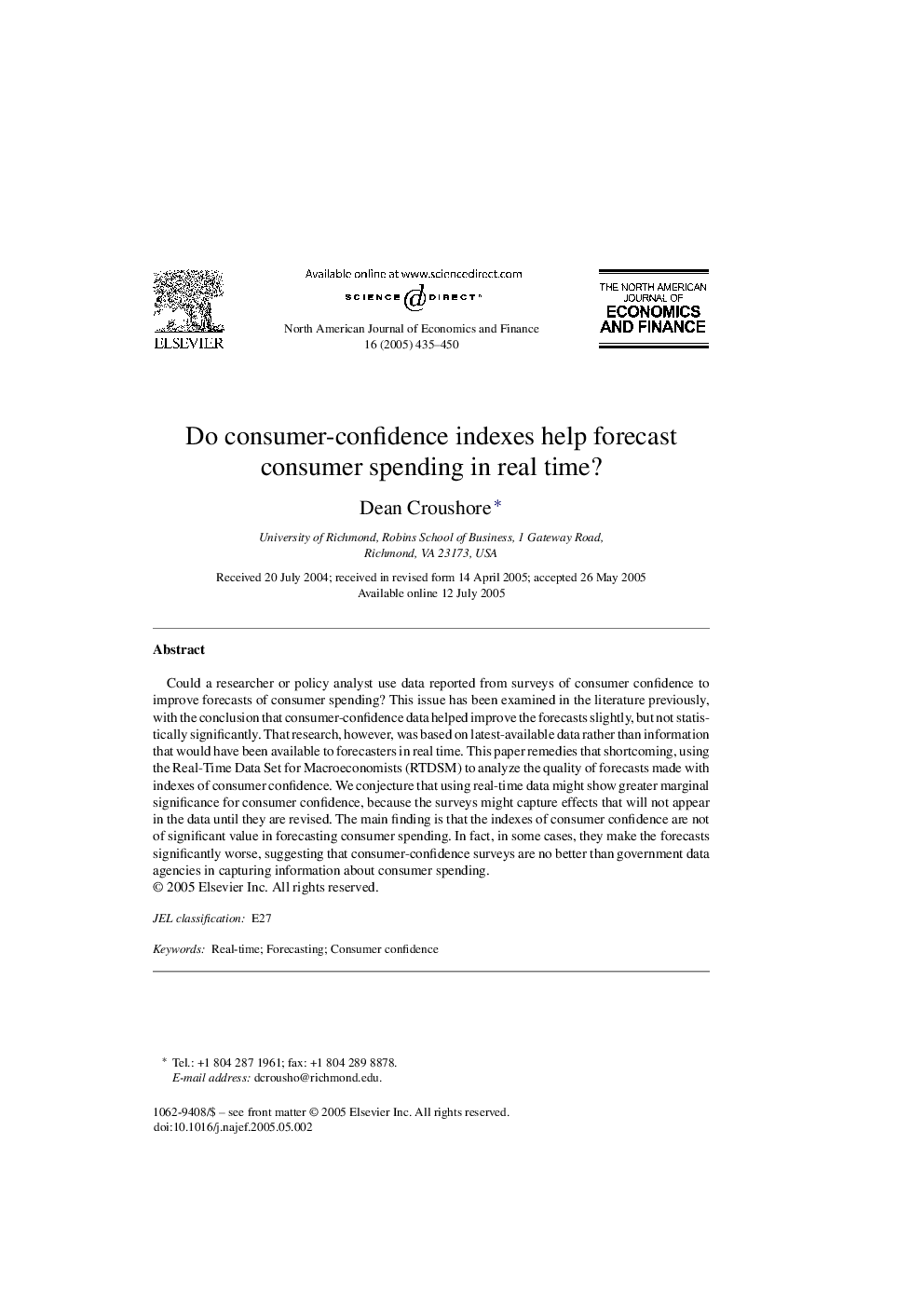| Article ID | Journal | Published Year | Pages | File Type |
|---|---|---|---|---|
| 9727388 | The North American Journal of Economics and Finance | 2005 | 16 Pages |
Abstract
Could a researcher or policy analyst use data reported from surveys of consumer confidence to improve forecasts of consumer spending? This issue has been examined in the literature previously, with the conclusion that consumer-confidence data helped improve the forecasts slightly, but not statistically significantly. That research, however, was based on latest-available data rather than information that would have been available to forecasters in real time. This paper remedies that shortcoming, using the Real-Time Data Set for Macroeconomists (RTDSM) to analyze the quality of forecasts made with indexes of consumer confidence. We conjecture that using real-time data might show greater marginal significance for consumer confidence, because the surveys might capture effects that will not appear in the data until they are revised. The main finding is that the indexes of consumer confidence are not of significant value in forecasting consumer spending. In fact, in some cases, they make the forecasts significantly worse, suggesting that consumer-confidence surveys are no better than government data agencies in capturing information about consumer spending.
Related Topics
Social Sciences and Humanities
Economics, Econometrics and Finance
Economics and Econometrics
Authors
Dean Croushore,
